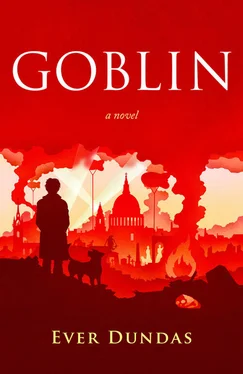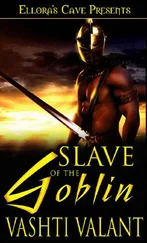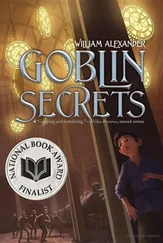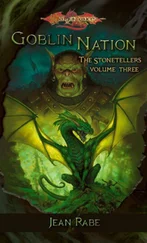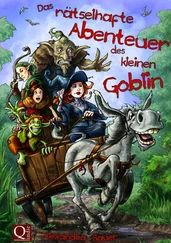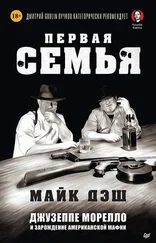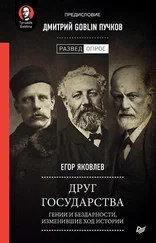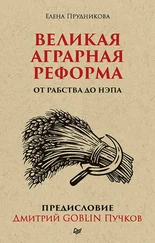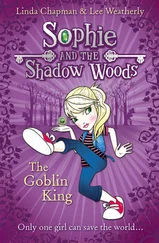Maria was crying, struggling to get the words out. A tear slipped down Juliana’s cheek.
‘You may kiss the brides.’
We kissed and I licked the tear from her cheek. There were cheers, laughter, clapping, and singing. We hugged Maria.
‘Thank you, grandma,’ I said, and kissed her, but this – the first time I called her grandma – only set her off sobbing. ‘You old dragon, craving all the attention as always. This is a happy day.’ I grabbed hold of her and swung her round, dancing, making her laugh. Antonio swooped in and danced her away, wiping at her face with tissues and I fell into the embrace of Juliana.
We had a lavish reception at Maria’s, where the prosecco flowed and a banquet was laid out with waiters on hand. As the sun set, the room was bathed in an orange glow. One of the waiters went round the room lighting dozens of candles, enclosing us in a flickering warmth. Maria had set jasmine on her balcony, the breeze carrying the scent. A bat flew in the window; confused, it circled the room over and over before disappearing into the hall, returning, spinning round the room then back out into the night.
‘A good luck bat,’ said Juliana.
‘Is that a Venetian thing? Bats are good luck?’
‘It’s our thing.’
Gio lured us out of the room on some pretence. When we returned, the wedding cake was on the centre of the table, our glasses re-filled with prosecco, and our guests had transformed into Beast Folk, each of them wearing an animal mask. Some of the masks had been decorated to resemble the animal as closely as possible, others simply had the shape of the animal’s head but were painted bright colours, adorned with plastic jewels. We were each presented with a mask. Juliana’s was a colourful bird with a huge orange beak, crowned with rainbow feathers. I was given a dog mask, covered in soft synthetic fur.
We wore our masks throughout the speeches, only removing them briefly to drink a toast and to eat the cake. We were ushered through to the adjacent room where a band played for us and we danced into the middle of the night, some wearing masks, others propping them on their heads or holding them like strange trophies.
When the guests left, we stayed. Maria not only offered us a room for the night, but the whole palazzo for several days.
‘I’ll look after your animals,’ she said, fishing in my bag for our apartment keys. ‘You two lovebirddogs enjoy yourselves. Spero che trascorriate una luna di miele da sogno.’
Venice, 1970s
Dad kept on sending postcards and I kept on tearing them up. I told Juliana all about it, about mum, and dad too. One of the postcards I’d torn up the day before, Juliana taped back together. She’d made me breakfast and had placed the postcard next to my plate.
‘What are you doing?’ I said.
‘Making you breakfast. Coffee?’
‘You know what I mean,’ I said, picking up the postcard and reading it again. It said ‘I miss you more than you know.’
One of the cats jumped into my lap. I put the postcard down and petted her. She purred and padded at my thighs until she was comfortable.
‘You’re the one who burned my things,’ I said, as Juliana poured me coffee. ‘You’re the one who said I don’t need the past.’
‘This is the present and your dad is trying to make amends.’
She picked up the postcard and pinned it to the wall above the table.
‘Can you make amends after trying to kill your daughter?’
‘He’s trying.’
I drank my coffee and stroked the cat’s head.
‘I’m here for you,’ she said. ‘There’s nothing to be afraid of.’
I didn’t receive another postcard for almost a month and when I did it was back to talk of Edinburgh, about a gallery he visited, his chess club. Still no return address. Juliana put them all on the wall. Days could pass with no postcards, but it was all I could think of. It made me angry, how manipulative it all was. There was still no return address.
‘Write to him anyway,’ said Juliana.
Instead, I took them all down and packed them away in a box. The latest one I threw away, but I fished it out later, coffee stained and stinking.
I got in touch with Tim. Do you know where he lives? Do you have his address? Have you seen him? Tim had met him several times, giving him my address, telling him to reconcile.
‘“How can I make amends?” he’d said. I told him just to get in touch,’ Tim said. ‘I hope I wasn’t wrong.’
He gave me his address and I didn’t know what to do. I didn’t know what to say. I sat down and I wrote:
‘youcowardlysonofabitch
youcowardlysonofabitch
youcowardlysonofabitch
youcowardlysonofabitch’
I wrote another: ‘Is this your idea of atonement? Telling me about your drawing classes and your fucking chess club?’
And another: ‘I’m well. I’m glad you’re well.’
And another: ‘I’m married now. I’m happy.’
And another: ‘I tried to drown myself. I was saved by a fat bald Italian who called me a stupid bitch and left me on the side of the canal. But now I’m well. I’m glad you’re well. Your chess club sounds fun.’
And another: ‘Fuck you and fuck your fucking chess club.’
And another and another, until I had my own box of unsent postcards. Finally, I had one I put a stamp on: ‘I’m well. It’s been good to hear from you.’ It sat on my table for a week before I sent it. Juliana and I would look at it over breakfast.
‘Today?’ she said.
‘No,’ I said. ‘Not today.’
Then the day came. I shuffled it into a pile of other mail, hiding it, pretending it wasn’t important as I dropped them all in the post box.
It was the start of months of correspondence, not going much beyond the mundane. I told him about my history tour job, about Juliana and our wedding, about my published photographs and articles, and all the cats and dogs and birds I took in. I told him he would love it here. I imagined him coming. I imagined going to Edinburgh.
He sent me a letter one day. His handwriting on the envelope, that familiar British stamp. I didn’t want to open it, but I did. He wasn’t one for many words. It simply said, ‘I’m sorry for what I did. I blamed you. But it wasn’t your fault. I love you and I’m sorry I failed you.’
I let Juliana see it that evening and she held me in her arms as I cried.
I didn’t respond directly to the letter. His postcards kept arriving as normal and we shared the mundane as normal, but there was a lighter tone. We teased each other. Made each other laugh. We wrote about him coming here, about me going there. But we never met again. I received a letter from a member of his chess club to say he’d died of a heart attack on 22 ndJanuary 1973.
Maria and Gio looked after the animals when Juliana and I went to Edinburgh for his funeral. It was a small service, with a handful of people.
His chess club was there. There were four of them after dad had gone, in their seventies and eighties apart from Aaron, a teenage grandson of one of the members. They knew everything about me; dad had never let up talking about me.
‘But he was sad when he talked about you,’ said Aaron. ‘It was as if you were dead. We all thought you were dead until the postcards.’
Not everyone kept in touch when the circus had disbanded, so we weren’t able to notify all the old circus folk. We put a notice in a national paper and picked up some people that way. There was Marv and Horatiu, Angelina and her wife, and old Louise who now looked like a wizened crone. A few of them I didn’t know; they’d joined the circus after I’d left. They all said how sorry they were but they couldn’t look me in the eye.
We had a wake back at dad’s flat. It was quiet and awkward at first and I clung onto Juliana. Once the drink had taken effect the circus folk all came over to me, Marv surprising me with a long hug and telling me over and over what a great man James was. By the end of the evening Marv, Horatiu, Angelina, old Louise and I were all in a corner together, drunk and reminiscing. Juliana drifted round the room, talking with everyone, topping up drinks. Old Louise started singing “We’ll Meet Again” and the room grew quiet, everyone turning to watch her: ‘Let’s say goodbye with a smile, dear, just for a while, dear, we must part, don’t let this parting upset you, I’ll not forget you.’ Juliana sat with me and I leaned into her, crying silently as we listened to old Louise.
Читать дальше
